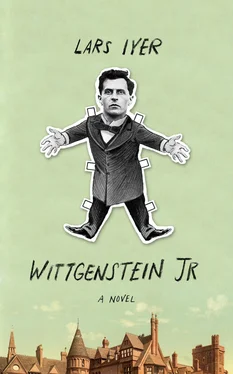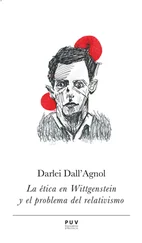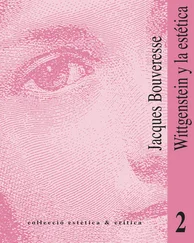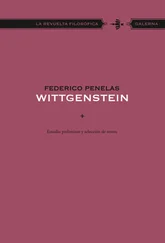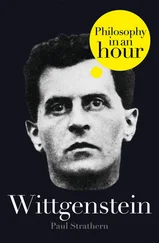EDE: Your poetry! What a sensitive young man you are, Peters.
ME: He quoted Blake. And Cowper.
EDE: Yes, yes, but did you get anything interesting out of him?
ME: He said he doesn’t read philosophy any more. If a book doesn’t make you want to throw it aside and think your own thoughts, what use is it? , he said. And another thing: he has a brother.
EDE: Really!?
ME: Yes, he mentioned him in passing. As my brother said of Oxford … Something like that.
EDE: Very interesting.
Ede opens his laptop and googles Oxford , coupled with Wittgenstein’s real surname. A news article: Oxford Don Suicide .
EDE: Very, very interesting — doomed genius. (Then, summarising): The brother was a brilliant young mathematician. A prodigy. Went up to Oxford at fifteen. Finished his doctoral studies at nineteen, when he became a Junior Research Fellow. Took his life at twenty. Well!
How old is Wittgenstein? we wonder. Twenty-three? Twenty-four? Definitely a potential suicide, we agree.
Ede googles logic and suicides , but gets nothing. He googles maths and madness .
EDE: Cantor sent himself mad, when he was investigating infinity, apparently. Gödel, too — he starved himself to death …
The framed picture of Descartes on the classroom wall. (A degenerate , Wittgenstein says.) The framed picture of Leibniz. (A monster of thought , Wittgenstein says.)
The philosopher looks different from other people, Wittgenstein says. The philosopher’s face has secrets. Hiding places. The philosopher is incapable of a simple smile.
There are no signs of philosophy in our faces, he says, looking round the class. Because we know nothing of fate , he says. Nothing of fatality . We do not understand what it means to be destined .
We are parts of things: that’s our luck, he says. The philosopher’s misfortune is to be a part of nothing. To stand apart from everything.
To renounce the pomps and vanity of the world, as St Paul said. I die daily : just think what that would really mean, Wittgenstein says.
The great risk is that we will lose our souls, Wittgenstein says. There are very few people who do not lose their souls. It will happen to us. Not now, perhaps, but eventually . We will be tested. We may gain the whole world, he says — and he’s sure many of us will, with our well-off families and our wealth of connections — but this matters little if we lose our souls.
Okulu’s organ recital.
Dim light. Medieval glass. The fan-vaulted ceiling.
We’re supposed to feel awe, Ede says, looking round the gloom. We’re supposed to feel dwarfed.
EDE: The mysterium tremendum . Transcendence and all that. The depth of history! Of tradition! Of religion! The mystique of old England, and so on. Well, there is no mystery. We’re all out in the open now.
We survey the audience. The Kirwins, in tracksuits. (EDE: You would have thought they’d have made some effort!) Scroggins, half asleep. (EDE: He’s high as a kite. You can see it.)
A spotlight over the organ.
EDE: Oh God— culture! Remind me why we came again?
Okulu, bowing to the audience. Taking his seat.
Rolling waves of Bach in the near-darkness.
The low notes get him right in the gut, Ede says. They’re loosening his bowels.
The bass notes are giving him an erection , Mulberry says.
We notice Wittgenstein below us, hands clasped over his knee. The nape of his neck, smooth and sallow next to the collar of his crisp white shirt.
MULBERRY: Calm yourself, Peters.
ME: Look how moved he is. His eyes are closed. What’s wrong with us, that we don’t feel that way?
EDE: We’re English. There’s no cure for that.
• • •
Walking back. Wittgenstein ahead of us.
He never feels anything you’re supposed to feel, Ede says.
All this art! Music! All these experiences !
I tell him I was moved. Very moved.
EDE: It’s because you want to be overawed, Peters. That’s what culture is for: overawing people like you.
Scroggins and the Kirwins catch up with us.
EDE (quietly): Oh God!
Discussion. Our plans for the Christmas break. A family safari in the heart of Zambia (the Kirwins). Swimming with sharks off the coast of Mauritius (Scroggins). Skiing in the Rockies (Ede — but he’s sick of skiing, he says) …
KIRWIN A: Where are you going, Peters? Yorkshire?
KIRWIN B: How’s the skiing in Yorkshire, Peters?
KIRWIN A: You’re really a bit of a peasant , aren’t you, Peters?
EDE: Just because Peters isn’t an aristo!
KIRWIN B: Well, we’re not aristos, technically speaking.
You have to be in Burke’s book of peerages to be an aristo.
KIRWIN A: Yes, but we’re hardly scholarship boys , are we?
We haven’t known poverty.
KIRWIN B: Alexander thinks that not going skiing constitutes poverty .
Ede asks the Kirwins about performance-enhancing drugs. Do they ever take them?
Vehement denials.
EDE: Oh, of course you do. All athletes do. They’re supposed to shrink your cocks, performance-enhancing drugs, aren’t they? Cock-shrinkage: has that happened to you? Come on, you can tell us.
The Kirwins storm off.
Laughter.
He was just asking , Ede says.
ME (looking ahead): What is Wittgenstein thinking about?
EDE: Death, I should imagine. Our shortcomings. His own shortcomings. His sense of sin.
We run to catch up with him.
Indian summer.
Ede and I, walking in the open fields by Grange Road.
If only we had something to talk about, like the scholars of yore! Something serious. Something weighty, on which to take sides! We would walk and talk, and talk and walk. We would outline our positions, and refine our ideas …
We would speak of topic A , as we walk, stroking our chins, and topic B , shaking our heads. We would ponder issue C with great sternness, and toss restless ideas back and forth about issue D . Patiently, carefully, we would consider the likely repercussions of thesis E , and ask whether the consequences of issue F have really been thought through. Is hypothesis G worthy of consideration? we’d wonder. And what about conjecture H ? We would shake our heads about nostrum I , and laugh about the preposterousness of fallacy J —how could anyone take J seriously! K is a heresy , we would agree, pursing our lips. As for L —there’s something to be said about L, we would agree, nodding our heads …
What is it we lack as intellectuals? we wonder. Ideas? Real intelligence? Is it a question of temperament? Of intensity ? Is it a matter of being European — old European — or at least foreign ?
You can’t teach love — that’s what Wittgenstein said yesterday. That’s the condition of philosophy: fierce and fiery love. Philosophy is the love of wisdom, he said. A love for what you do not possess. A love for what, nevertheless, has left its trace in you.
Wittgenstein is a lover — that’s what we learnt yesterday. A lover’s heart beats beneath that dour exterior …
Do we have love — real love — for philosophy? Ede and I wonder. Are we capable of that love?
We have the sense of living for something larger than us, better than us. The sense of something worthwhile , that we can serve. We have the sense of something difficult , to which we can dedicate ourselves. The sense of being part of something, involved in something …
Читать дальше
